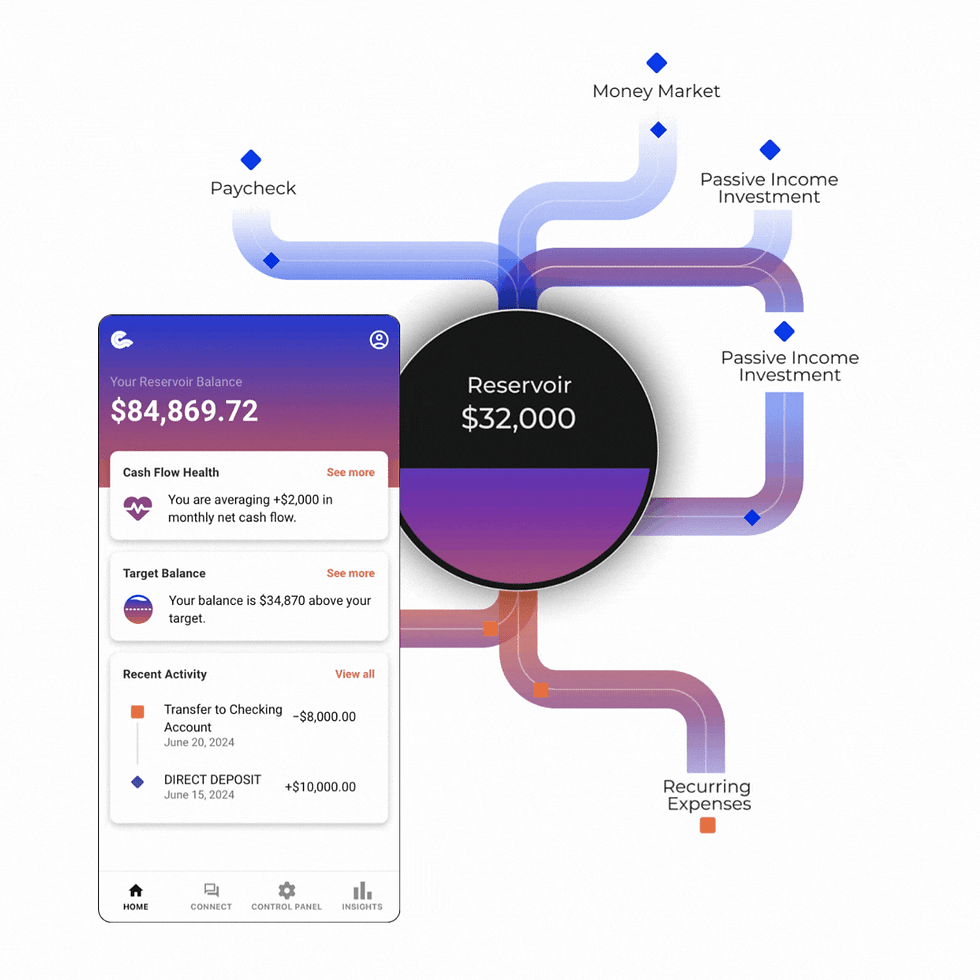Understanding the Impact of Tennessee's Franchise Tax Overhaul: What Businesses Need to Know
- Allison L. Reynolds, CPA

- Apr 29, 2024
- 4 min read
Updated: Jul 30, 2025
April 26, 2024

Businesses registered in Tennessee as a limited liability company (LLC) or corporation (Subchapter S or C) must pay taxes to the state annually. There are two components to the tax: Excise which is 6.5% of net income not subject to self-employment and Franchise which is based on the higher of two criteria: either the net worth of the taxpayer (assets minus liabilities) or the net book value of property utilized or owned by the taxpayer in Tennessee, referred to as the "alternative base." Tennessee recently made substantial revisions to its franchise taxation system with the passing of House Bill 1893/Senate Bill 2103 by the Tennessee General Assembly, two major adjustments have been made to the franchise tax structure:
1. Removal of the alternative base
Effective for tax years concluding on or after January 1, 2024, franchise tax calculation will now be solely based on the net worth measure. For real estate holdings this could be a significant tax savings as the net worth of the company is the assets minus the liabilities. Whereas the alternative base did not factor in liabilities.
2. Refunds for past franchise tax payments
Taxpayers who previously paid taxes based on the alternative base are now eligible to apply for refunds through the Tennessee Department of Revenue.
Following approval by both legislative chambers (with a vote of 69-23 by the House and 25-6 by the Senate) after three months of legislative deliberations, the bill is currently awaiting Governor Bill Lee's signature. Governor Lee's prompt endorsement is anticipated, enabling the Tennessee Department of Revenue to prepare for the expected surge in refund requests.
This legislative alteration stands as one of the most significant changes in franchise tax law to date. The Tennessee Department of Revenue approximates that approximately $1.5 billion in franchise tax payments, made by about 100,000 taxpayers, will be eligible for a refund. While this presents a lucrative opportunity for eligible taxpayers to recoup funds, it also requires significant action within a relatively brief timeframe, please see below for more details in the FAQ section below.
Frequently Asked Questions:
Who is eligible for a refund?
Eligible taxpayers are those who previously paid franchise tax based on the alternative base (net book value of property utilized or owned by the taxpayer in Tennessee). The legislation does not affect the net worth tax base. Consequently, the refundable amount corresponds to the tax actually paid on the alternative base, minus the amount of franchise tax that would have been owed based on the net worth base. Taxpayers who paid based on the net worth base for relevant years are ineligible for refunds.
Which tax periods qualify for refunds?
Refunds are applicable for tax returns filed on or after January 1, 2021, covering periods ending on or after March 30, 2020. For calendar year taxpayers, this may encompass up to four distinct tax returns, CY2020-2023. Short period returns and fiscal year taxpayers within the aforementioned parameters are also eligible for refunds. This may mean you will have to file your 2023 tax return and then amend it to claim a refund.
How can I request a refund?
Taxpayers must amend previous year returns and submit a refund claim within the timeframe of May 15, 2024, to November 30, 2024. A specific refund claim form and procedure must be followed. Additionally, taxpayers will likely need to provide additional evidence substantiating the refund eligibility, including a balance sheet and a Report of Debts form for each year.
Will my identity and refund amount be disclosed if I apply for a refund?
Yes and no. In light of the anticipated volume of refunds and the necessity for transparency regarding the recipients, the names of taxpayers seeking refunds will be published on the TDOR’s website for the period spanning May 31, 2025, to June 30, 2025 (the final month of the state’s fiscal year). However, the exact refund amounts will not be disclosed. Refund recipients will be identified by name and categorized into three ranges based on the amount sought: 0-$750, $750.01-$10,000, and greater than $10,000. This information will be removed after June 30, 2025.
I utilized Jobs Tax Credits and/or Industrial Machinery Credits to offset my franchise tax liability instead of making a cash payment. Will I still be eligible for a refund?
Yes. While there is no option for a cash refund for credits used to offset franchise tax liability on an original or previously amended return, these credits will be reinstated as part of the refund process. Subsequently, these restored credits can be applied in future tax periods to mitigate tax liability, provided they remain within Tennessee’s 25-year carryforward window.
How can I initiate the process?
Further guidance will be provided by TDOR as it prepares for the anticipated influx of refund claims. While this presents an unprecedented opportunity to recover franchise tax payments made in past years, there is a limited window for action. We will be reviewing all of our client's filings to determine who is eligible for a refund and will reach out to you as that work is completed.
For more detailed information you can visit the Tennessee General Assembly page here. For personalized assistance navigating these significant changes to Tennessee's franchise tax system or if your company believes it qualifies for a refund, please send us an email.






Comments